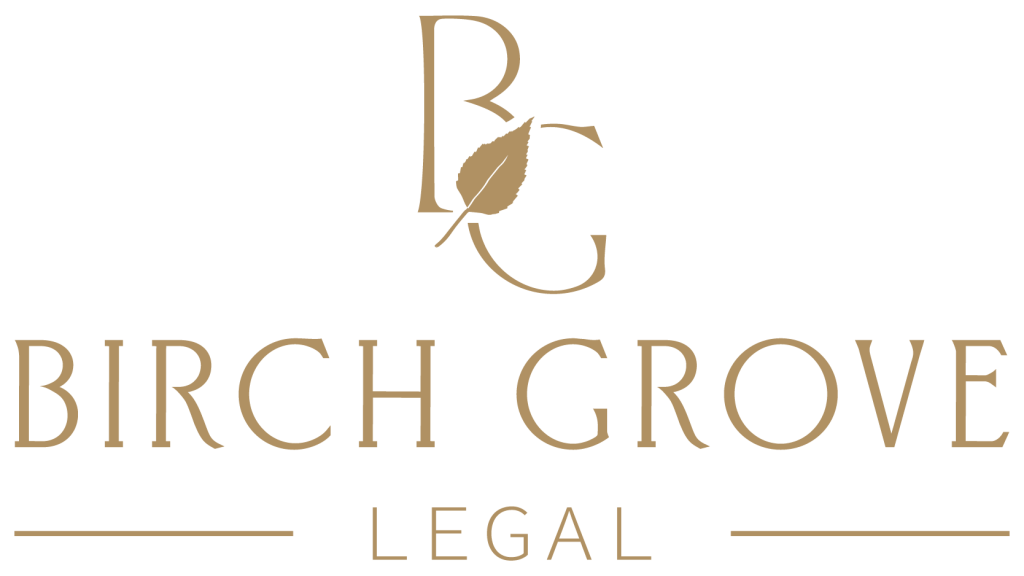Planning your estate can raise tough questions, especially when you’re trying to balance cost with peace of mind. For many Colorado families, trusts seem complicated or unnecessary. But skipping one could lead to court delays, public probate, and family stress.
A trust is often part of a broader financial planning strategy to protect assets and pass them on efficiently. Trusts in Colorado are for everyone, and they can be practical tools for avoiding probate, simplifying asset transfers, and protecting loved ones.
At Birch Grove Legal, we help families determine if a trust is the right move for their goals. In this guide, we’ll break down when a trust makes sense and when it might not.
The Importance of Trust in Colorado

For many Colorado families, deciding whether to create a trust comes down to goals, complexity, and cost. A living trust isn’t required for everyone, but in the right situations, it can provide significant advantages.
Living trusts are commonly used to avoid probate, ensure privacy, and make asset transfers smoother for loved ones. These benefits are especially relevant if you own property in multiple states, want to keep your affairs out of the public record, or have concerns about how your heirs will manage their inheritance.
But it’s important to understand that not all trusts serve the same purpose. Some scenarios require more specific planning tools, such as a Medicaid asset protection trust or a special needs trust.
If your situation involves blended families, out-of-state property, young children, or privacy concerns, a trust may be the best path forward.
Cons of Making a Trust in Colorado
While living trusts offer many benefits for Colorado families, they’re not the right fit for everyone. It’s important to weigh the drawbacks before deciding if a trust is worth the cost.
- Higher upfront cost: A revocable living trust is more expensive to draft than a standard will. That’s because it requires detailed legal planning and extra time to ensure proper structure and funding.
- Ongoing maintenance: A trust isn’t set-and-forget. Buying new property, opening financial accounts, or refinancing your home means you’ll need to update the trust; otherwise, your assets may not be protected as intended.
- No court oversight: With a will, the court supervises the distribution of your assets. With a trust, there’s no formal oversight, which means you must fully trust your chosen trustee to follow your instructions accurately and ethically.
What Trust Should You Get?

The term family trust refers to the purpose of the trust, not its legal type. Any of the trust types below can be used to create a family trust, depending on your goals.
- Inter Vivos Trust: Created during the grantor’s lifetime. This can be either revocable or irrevocable.
- Testamentary Trust: Formed through a will and only takes effect after death. These are always irrevocable.
- Revocable Trust: Created while the grantor is alive, with full power to modify or revoke it. Upon the grantor’s death, it becomes irrevocable.
- Irrevocable Trust: Cannot be changed or revoked after creation, although the trustee may have limited powers to manage it.
The right trust depends on how it fits within your broader estate plan, which may include wills, healthcare directives, and powers of attorney.
Family trusts vs Living trusts
Many Colorado residents use the terms family trust and living trust interchangeably, but they serve different descriptive purposes.
A living trust is a legal structure, usually revocable, that’s created during your lifetime to manage and distribute assets. It avoids probate, simplifies transfers, and allows you to set inheritance conditions.
A family trust is not a separate legal category. It’s simply a living trust (or another type) that names family members as beneficiaries. In short, a family trust is defined by who it benefits, while a living trust is defined by how and when it’s created.
So, a family trust can also be a living trust.
Living Trust Benefits
While both are commonly used in Colorado, a living trust offers clear cost and time-saving advantages over a will.
One major benefit is avoiding probate. In Colorado, probate can consume 3%–8% of your estate’s value through court fees, legal costs, and administrative expenses. On a $1,000,000 estate, that could mean losing $30,000–$80,000 just to process your will.
A revocable living trust helps you bypass probate entirely. Since the trust owns your assets, there’s no need for court involvement after your death. While setting up a trust costs more upfront than a will, it can save your estate far more in fees and delays, especially if you own property or assets across multiple states.
Another advantage is faster distribution. Colorado courts are backlogged, and probate can take 8 months to 2 years. A trust allows your chosen successor trustee to transfer assets to your beneficiaries in weeks, not months.
Family Trust Advantages & Disadvantages
Family trusts are helpful when you want to protect younger or less financially experienced beneficiaries. Instead of handing out a lump sum, you can use the trust to set milestones or distribute money gradually, such as funding college, limiting large purchases, or tying distributions to age or behavior.
This gives you long-term influence over how your legacy is used, helping your children or grandchildren make responsible decisions.
That said, a family trust does require planning around tax consequences. Depending on how the trust is structured, taxes may be owed by the grantor, trustee, or beneficiary. Poor planning could lead to penalties, missed filings, or higher tax rates for the trust itself.
Planning trusts for blended families or beneficiaries with special needs requires careful attention to distribution terms and trustee discretion, requiring a Colorado Estate Planning attorney to explain it for you.
Revocable Trust vs Irrevocable Trust
In Colorado, a revocable trust gives you full control, you can change or cancel it anytime during your life.
An irrevocable trust, once established, can’t be changed without court approval or special conditions. While it offers stronger asset protection and potential tax benefits, it also limits your control.
Most Colorado families use revocable trusts for estate planning. Irrevocable trusts are typically used for long-term care planning, asset protection, or special estate tax strategies.
The Cost Breakdown of Making a Trust for Your Family in Colorado

The cost to create a trust in Colorado depends on the type of document, how complex your estate is, and your attorney’s experience.
- New trusts or wills usually cost between $150 and $500 per document.
- If you’re updating existing documents, expect to pay between $600 and $1,650, depending on how much needs to be revised.
Additional Fees to Expect
- Notary Fees: Around $15 per document. Some notaries charge more for travel or added services.
- Executor Fees: Paid out of your estate after you pass. You can set the amount in your will; if you don’t, the default may be more than you’d expect.
- Probate Costs: Probate in Colorado can cost up to 10% of your estate’s value, covering court filings, attorney fees, appraisals, and other admin costs.
What Affects the Price?
Three things influence how much your trust or will costs:
- Attorney Experience & Location: Lawyers in cities like Denver may charge more than those in smaller towns.
- Type of Document: Simple wills are cheaper than trusts. Custom trusts that need legal tailoring cost more than online templates.
- Estate Complexity: The more assets, beneficiaries, or special instructions you have, the more time and work the document requires.
How to Set Up a Family Trust

Creating a family trust in Colorado involves two essential steps: drafting the trust document and transferring your assets into the trust’s name.
First, a qualified estate planning attorney will draft your trust. This document names the grantor (you), the trustee who will manage the trust, and the beneficiaries who will receive the assets. It also outlines how the trust should be handled both during your life and after you pass away. Once signed and notarized, your trust becomes legally valid.
Next, you’ll need to fund the trust. This step is important because an unfunded trust won’t help you avoid probate. Funding typically includes:
- Transferring real estate titles using a quitclaim deed
- Opening new bank or investment accounts in the name of the trust
- Listing personal property like artwork, jewelry, or heirlooms on a trust schedule
- Ensuring beneficiary designations and ownership align with the trust
You can also continue to move assets into the trust over time as your estate grows.
Some family trusts, especially irrevocable ones, include a spendthrift provision. This protects family or child assets from being misused by a beneficiary or seized by creditors.
The trustee controls distributions and can withhold funds if doing so protects the trust’s purpose. While these provisions are powerful, they don’t block all creditor claims; child support, alimony, and essential debts may still be enforced.
Consult with an Attorney For Your Estate Plan In Colorado
Living trusts can save your family time, money, and stress—but only if they’re set up correctly. At Birch Grove Legal, we design trusts that reflect your priorities, protect your assets, and keep the court out of your estate.
If you’re thinking about a trust but unsure if it’s worth it, let’s talk. We’ll give you clear, practical advice based on your goals, not a sales pitch.
Book your consultation today and get answers you can actually use.





0 Comments